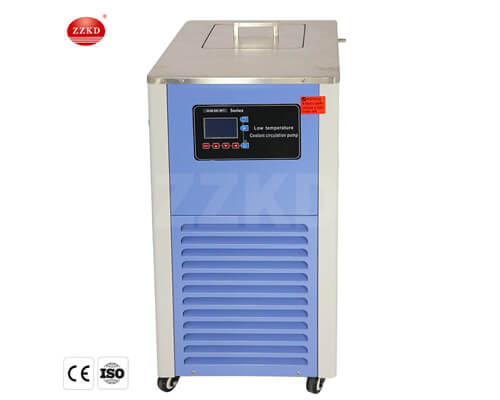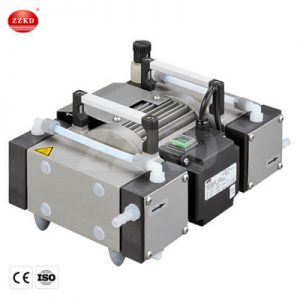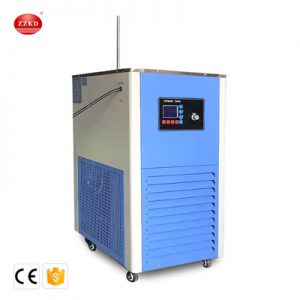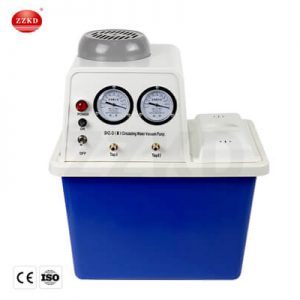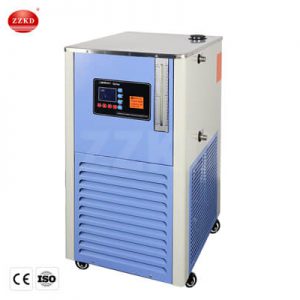Refrigerated circulator introduction
A refrigerated circulator is a type of laboratory equipment used to control the temperature of a sample or a set of samples within a specific temperature range. It consists of a refrigeration system, a circulation pump, and a heating element, all of which work together to maintain a stable temperature for the sample.
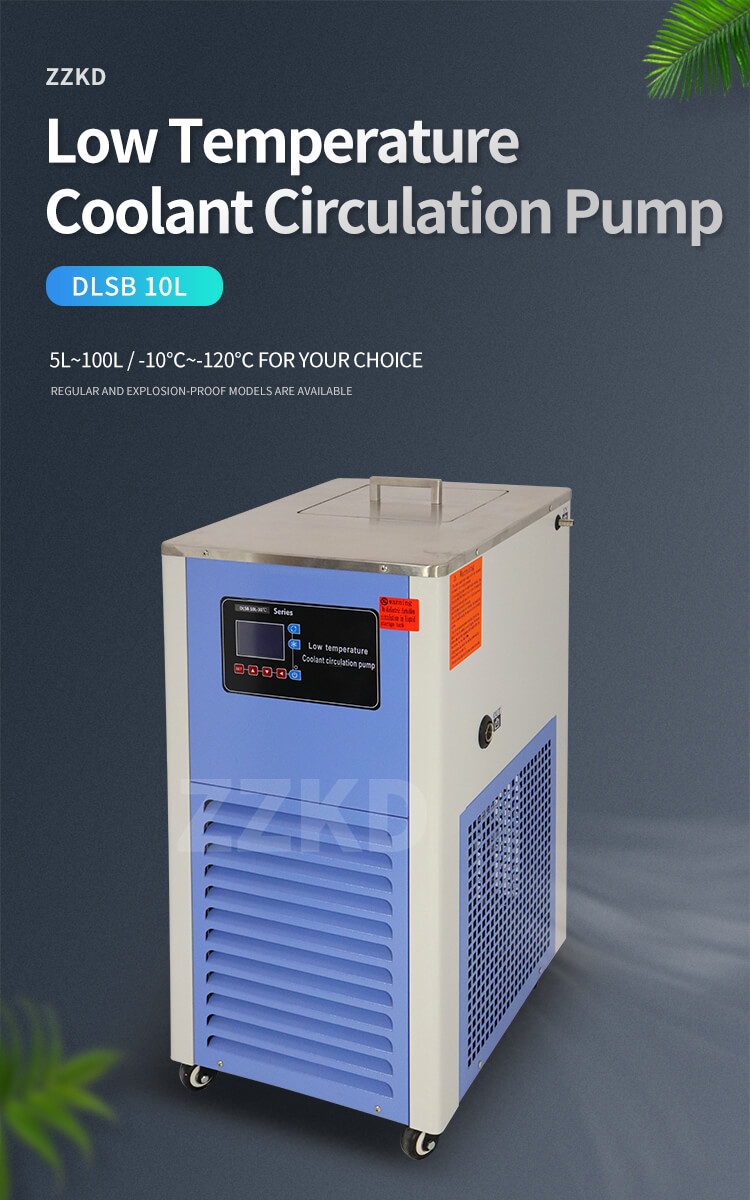
The refrigeration system cools a fluid, such as water or ethylene glycol, which is then circulated through a heat exchanger. The heat exchanger is placed in contact with the sample, which allows the fluid to transfer heat and regulate the temperature. The circulation pump ensures that the fluid is evenly distributed throughout the system, while the heating element is used to raise the temperature if necessary.
Refrigerated circulators are commonly used in scientific research, analytical chemistry, and quality control applications where precise temperature control is critical. They are available in various sizes and temperature ranges, and can be configured with different types of controllers and sensors to suit specific applications.
Refrigerated circulator Features:
Refrigerated circulators can have various features depending on the specific model and application, but here are some common features you can expect to find:
- Temperature Range: Refrigerated circulators can typically achieve a wide temperature range, often from as low as -50°C to as high as 200°C or more, depending on the model.
- Temperature Control: These circulators often have advanced temperature control systems, such as PID (Proportional, Integral, Derivative) controllers, which enable precise temperature regulation and stability.
- Cooling Capacity: Refrigerated circulators can have different cooling capacities, typically measured in watts or kilowatts. The cooling capacity determines how quickly the circulator can cool down the fluid and maintain the desired temperature.
- Pump Capacity: The pump capacity of the refrigerated circulator determines how much fluid can be circulated through the system. Higher pump capacities allow for faster and more efficient temperature control.
- Display and Control Panel: Most refrigerated circulators have a user-friendly control panel with a display that shows the set and actual temperature, pump speed, and other parameters. The control panel allows the user to adjust the temperature, pump speed, and other settings.
- Safety Features: Many refrigerated circulators have safety features such as over-temperature protection, low-level protection, and alarms for abnormal conditions.
- Communication and Data Logging: Some models have communication ports, such as USB or Ethernet, that enable data logging and remote control of the circulator. This allows users to monitor the temperature and other parameters of the circulator and receive alerts if there are any issues.
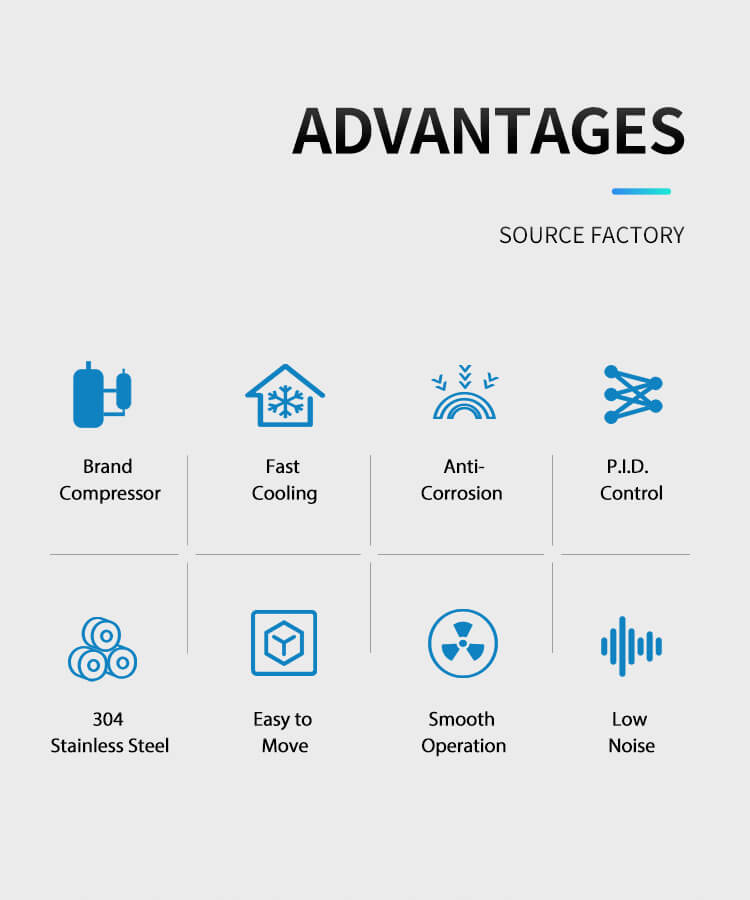
Refrigerated circulator Application:
Refrigerated circulators are versatile laboratory instruments that can be used in a wide range of applications where precise temperature control is required. Some common applications of refrigerated circulators include:
- Biotechnology: Refrigerated circulators are commonly used in biotechnology research, such as protein purification, DNA sequencing, and cell culture. Maintaining the correct temperature is critical to ensure the accuracy and reproducibility of experiments.
- Pharmaceutical: In the pharmaceutical industry, refrigerated circulators are used for stability testing, drug development, and quality control. Temperature control is critical to ensure the efficacy and safety of drugs.
- Chemical Research: In chemical research, refrigerated circulators are used to control the temperature of chemical reactions, as well as for distillation, crystallization, and other processes.
- Materials Science: In materials science, refrigerated circulators are used for thermal analysis, polymer characterization, and material synthesis. Precise temperature control is necessary to obtain accurate results and to prevent damage to the samples.
- Food Science: In food science, refrigerated circulators are used for food preservation and temperature-sensitive food testing. They can also be used to simulate various storage conditions for food products.
Refrigerated circulators are valuable tools in a wide range of scientific and industrial applications where precise temperature control is necessary to ensure the accuracy, quality, and reproducibility of results.
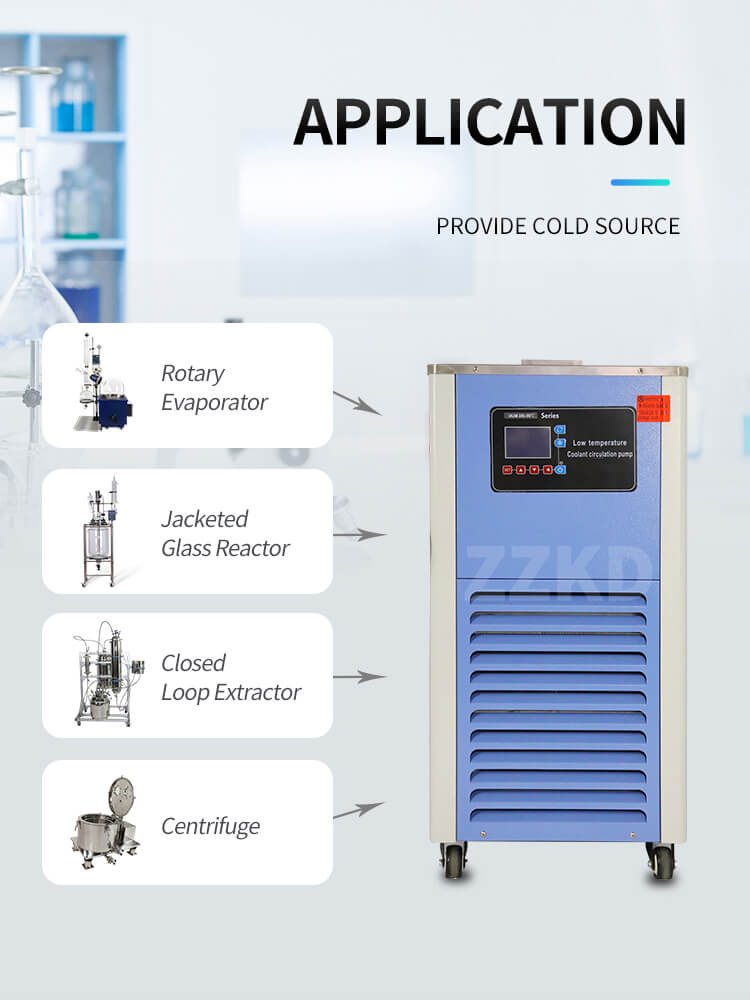
Case : ZZKD Company Selling Refrigerated circulator to an American Customer
ZZKD is a company that specializes in the manufacturing and selling of laboratory equipment, including refrigerated circulators. In 2022, ZZKD had the opportunity to sell their refrigerated circulator to an American customer, a research laboratory located in California.
The customer was a leading research institution in the field of genetics, and they required a refrigerated circulator for their genetic research projects. The customer was looking for a high-quality circulator that would provide precise temperature control, reliability, and durability. After conducting extensive research on the available options, they decided to purchase ZZKD’s refrigerated circulator.
ZZKD’s sales team provided excellent customer service, responding promptly to the customer’s inquiries and providing detailed information about the product’s features and specifications. The team also assisted the customer in choosing the right model and provided a competitive price quote.
The customer was pleased with the efficiency and professionalism of ZZKD’s sales team and decided to purchase the refrigerated circulator. ZZKD shipped the product promptly, and it arrived at the customer’s laboratory within the expected timeframe.
After using the refrigerated circulator for several months, the customer provided feedback on the product’s performance. The customer reported that the circulator met all their requirements and exceeded their expectations. The customer praised the circulator’s precise temperature control, quiet operation, and ease of use. They also appreciated the product’s durability and reliability, as it had been used extensively in their laboratory without any issues.
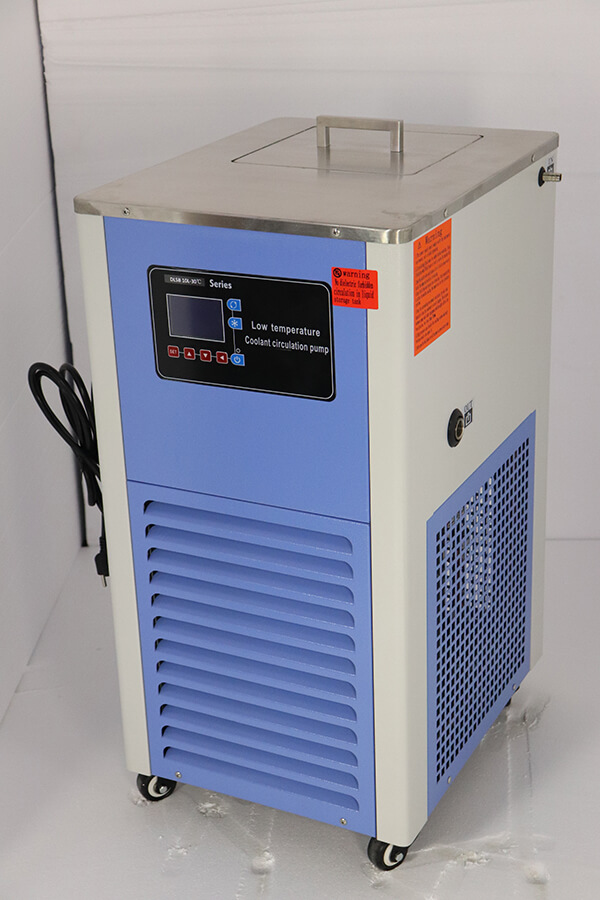
Overall, the customer was highly satisfied with the refrigerated circulator and expressed their appreciation for ZZKD’s excellent customer service and high-quality product. The customer’s positive feedback demonstrated the effectiveness of ZZKD’s refrigerated circulator in meeting the needs of a leading research institution, and it served as a testament to ZZKD’s commitment to providing reliable, high-quality laboratory equipment to their customers.

